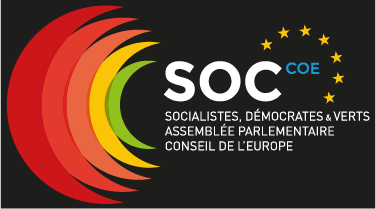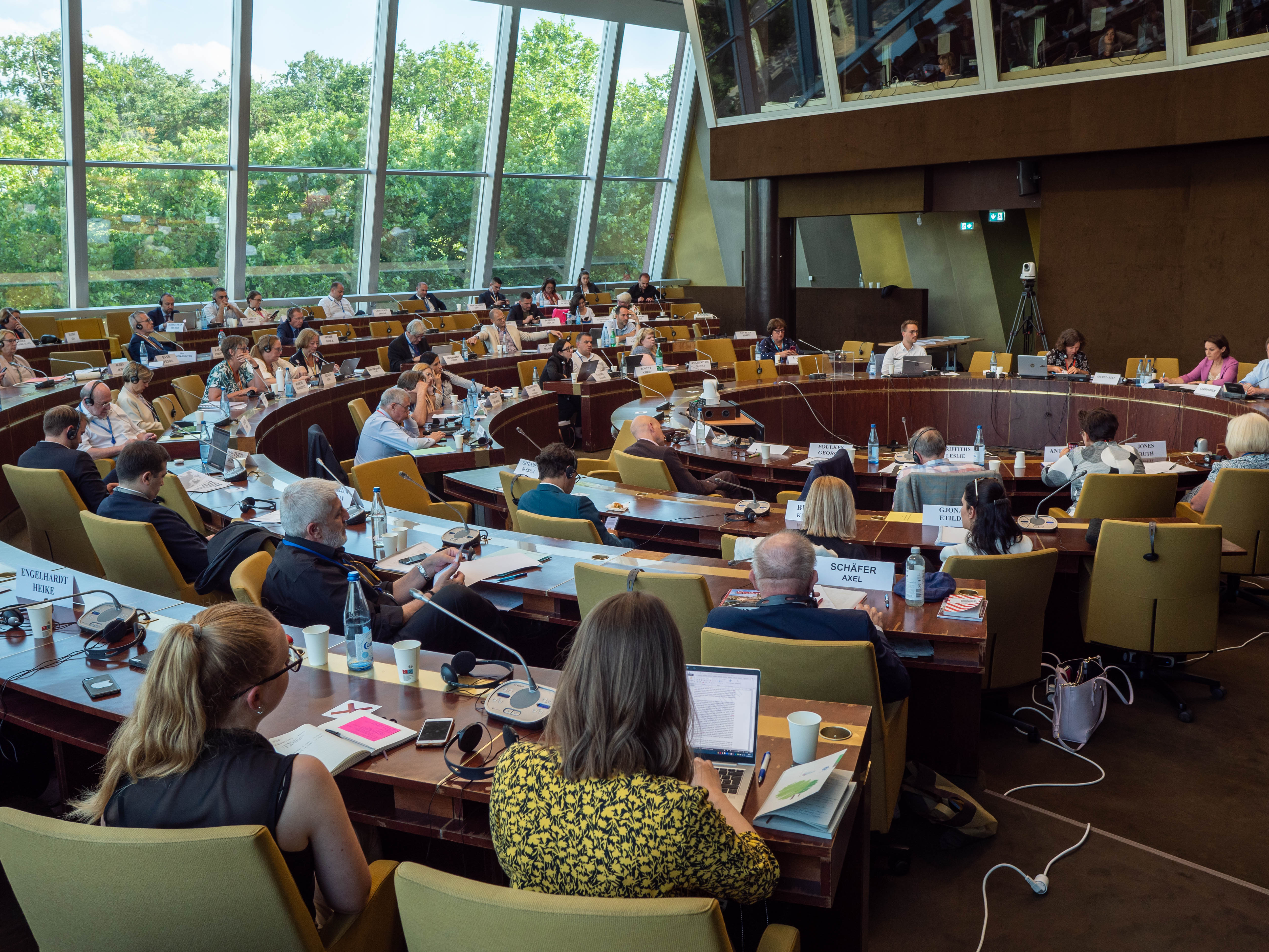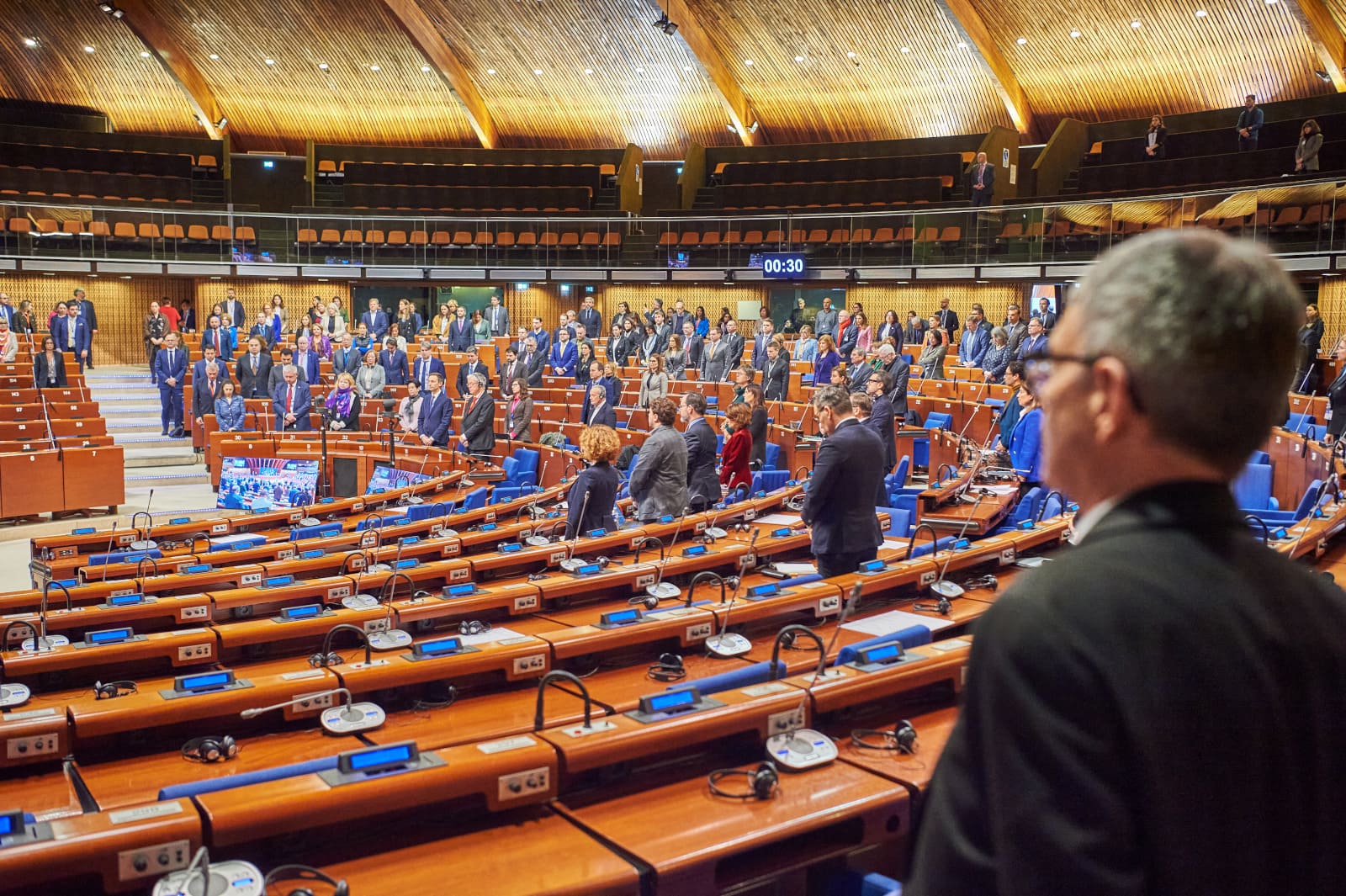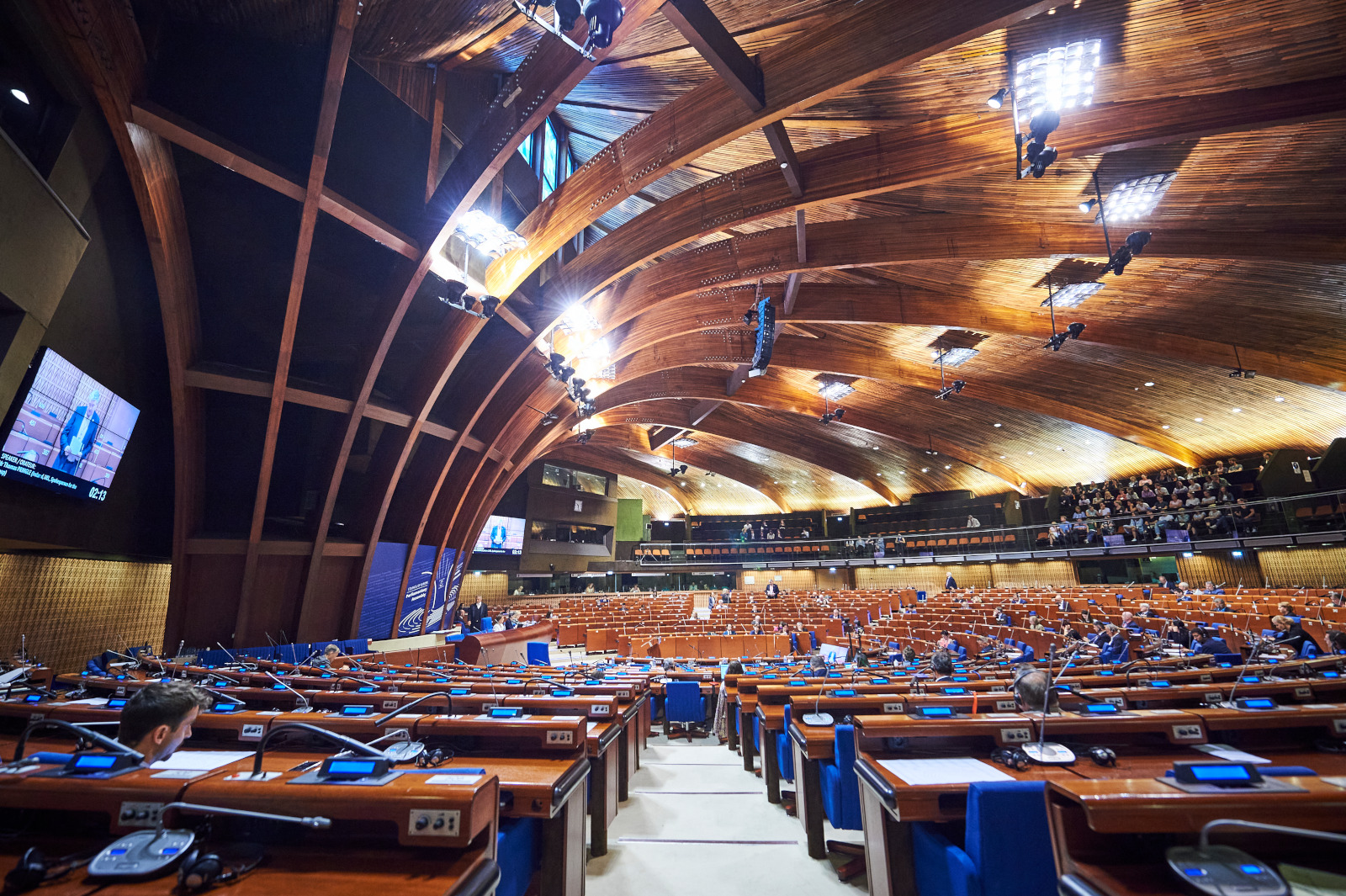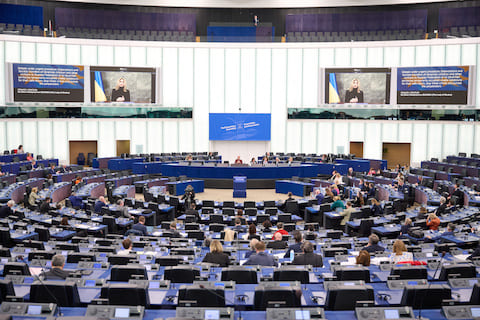
SOC NEWSLETTER
The Spring session of the Parliamentary Assembly of the Council of Europe (PACE) was held in Strasbourg from 24 to 28 April 2023. Due to the ongoing renovation of the Chamber of the Palais, the European Parliament hosted this Plenary session.
Current affairs debate
#RoadToReykjavik#
Recalling that “the Reykjavík Summit is the response of the member States to the Russian Federation's aggression against Ukraine”, Fiona O’Loughlin (Ireland, ALDE) underlined that “it should also be the platform which ensures that the Council of Europe can prevent similar situations from reoccurring in the future”. Fiona O’Loughlin reminded the Assembly of the direct impact that the European Convention on Human Rights has on all Europeans’ lives and of its duty to “reverse the backsliding of democracy”.
Addressing the members of the Assembly in this current affairs debate, the President of the European Court of Human Rights, Síofra O'Leary, stressed the importance of their dual membership (in the Assembly and in national parliaments) for “the smooth functioning of the Convention’s system” and reiterated that their “involvement provides democratic legitimacy to the Court (…) – the only international tribunal currently dealing with human rights issues related to the ongoing war in Ukraine”. To this end, she called on member States and on the Heads of State and Government “to translate the discourse of values into material and political support”.
Frank Schwabe, spokesperson of the SOC Group, reminded the Assembly of the utmost importance of the European Court of Human Rights and urged member States to ensure that “the Court rulings are implemented without any ‘ifs’ and ‘buts’”.
Political strategies to prevent, prepare for, and face the consequences of natural disasters
By unanimously approving a resolution based on a very important report prepared by Simon Moutquin, PACE called on member States to put in place measures to regulate climate change and offset the impact of the climate crisis, with an approach based on human rights and democratic participation. To this end, he identified four phases: prevention, preparation, intervention and reconstruction. Our SOC rapporteur reminded the Assembly that natural disasters affect a whole set of fundamental rights that are at the core of the Council of Europe – with the first being the right to life. He identified the pressing questions which arose after the disastrous earthquake in Türkiye and Syria, and explained that the addendum to his report “is above all a call for solidarity”.
Speaking on behalf of the Group, Franziska Kersten reminded the Assembly of the global north’s responsibility for the largest part of climate change – which, nonetheless, affects negatively primarily the global south. Drawing on the report, she urged member States to follow the Intergovernmental Panel on Climate Change’s recommendations and she further called on member States “to make much greater use of the potential of ecosystems” with regard to natural disasters, which are increasing due to climate change.
Selin Sayek Böke, Chairperson of the Committee, underlined that “there is nothing natural about disasters. […] They are determined by political choices. As such, they can only be avoided by political choices and changes in political strategies.” To that end, she invited all member States to change their political choices and build resilient cities, inclusive democracies and green economies.
Implementation of judgments of the European court of Human Rights
By unanimously adopting a resolution based on a report prepared by Costis Efstathiou, PACE urged all member States to fulfil their legal obligations, by implementing the final, binding judgments of the European Court of Human Rights. Our SOC rapporteur reminded the Parliamentary Assembly that its role is two-fold: “in addressing the fundamental legal issues at stake, which are intrinsic to the Court’s judgments, but also the political will –or lack of thereof– both of national authorities and that of the Committee of Ministers in applying the necessary pressure, both politically and legally”. Furthermore, the rapporteur underlined that, as the Court deals with severe cases of human rights’ abuses not addressed effectively at the national level, the lack of implementation of the Court’s judgments leads citizens to question the legitimacy and viability of the core work of the Council of Europe.
Saša Magazinović, spokesperson for the SOC Group, invited all member States to pay attention to the “particularly complex cases” mentioned in the report –which were asked to be prioritised with its recommendations– and reiterated that “the issue of implementation largely depends on political will”.
Ünal Çeviköz reminded the Assembly that “the implementation of the Court's judgments is binding on all branches of state authority and cannot be avoided through the invocation of technical problems or obstacles which are due to the lack of political will, lack of resources or national legislation, including the constitution”. Finally, he expressed his faith that, after the elections in Türkiye, his country would show up again “with a strong mandate to reinforce its place among the members of this community”.
Debate under urgent procedure
Deportations and forcible transfers of Ukrainian children and other civilians to Russian Federation or to Ukrainian territories temporarily occupied: create conditions for their safe return, stop these crimes and punish the perpetrators
In this urgent debate the Assembly approved unanimously a resolution based on a very timely report prepared by Paulo Pisco, demanding the safe return of forcibly displaced Ukrainian children and the punishment of the perpetrators. The SOC rapporteur informed PACE that, although the deportations of Ukrainian children from occupied Ukrainian territory had started before the war, they intensified after the full-scale invasion – with the Humanitarian Research Lab of Yale identifying “at least 43 re-education camps in Russia, in occupied Crimea and Belarus, where at least 6.000 Ukrainian children were detained, in two of them with military training”. The rapporteur reminded the Assembly that both the 1948 Genocide Convention and the Rome Statute of the International Criminal Court state that the deportation or forcible transfers of children from one group to another constitutes an element of the crime of genocide – an element also found in the process of “Russification” (and subsequent loss of identity) of the Ukrainian children.
Rapporteur for opinion, Carmen Leyte (Spain, EPP/CD), praised Paulo Pisco for his well-documented report and fully supported the draft resolution and recommendation, without the need to propose any amendments. Recognising the Council of Europe’s vital role “as a guardian of human rights, democracy and the rule of law in the region” , she highlighted the importance of ending these crimes and safely repatriating the deported children, after their identification and location, and of bringing the culprits to justice – whether it is before international or national courts.
In her speech via video-link from Kyiv, Ukraine’s First Lady, Olena Zelenska, shared with the members of the Assembly the personal stories of Ukrainian children who were nearly abducted. She informed PACE that, although there are currently 361 cases of children who were returned, 19.390 children are still in Russian captivity – a number that is not final, since we are unaware of the situation in occupied territories. She reminded PACE that “there are many terrible war crimes in the world waged by Russia against Ukraine, but this one is special because it affects those who are always the most vulnerable, the most unprotected – and this crime is taking place right now, right at this moment as we speak. […] Behind each figure is a broken life. Not only of the child, but of his or her entire family.”
Speaking on behalf of the SOC Group, Sunna Ævarsdóttir invited the leaders of this institution to do their utmost to establish a mechanism to trace these children and return them to their families, stressing that “we should not forget history and we should learn from the mistakes of history”.

